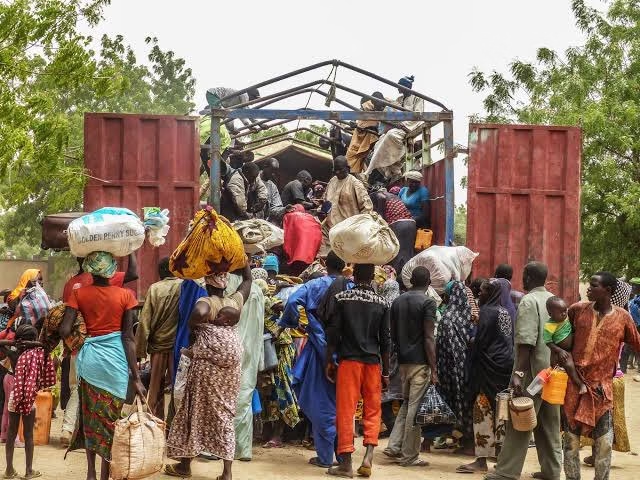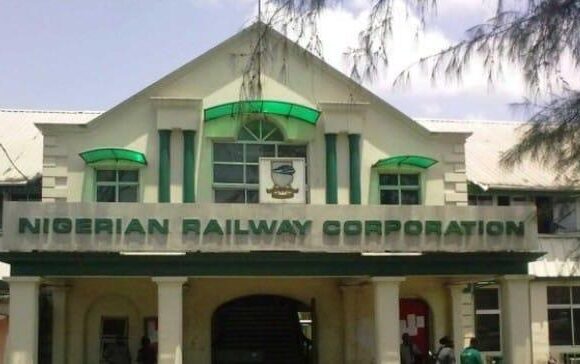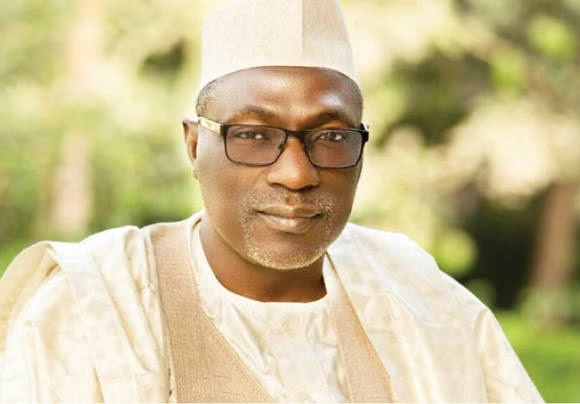FG received N12.3 trillion ($7.89bn) loans, grants to tackle poverty, but more Nigerians sink deeper into poverty

- Cost of living in urban centres is too high for the average salary earner
- Rural dwellers can’t survive on earnings from their farms
- From 2019 to 2025, Nigeria has been the destination of a floodgate of loans and grants for conditional and unconditional cash transfers
- The payment of cash transfers is not transparent
- Tinubu’s palliatives not reaching the poor
- Government must urgently subsidize healthcare, transportation, education, food
By Theophilus Abbah & Emmanuel Kwada
It was 6:00 a.m. on a rainy Wednesday.
Sylvester Adamu, a 27-year-old graduate with a diploma in Architecture, shivered as the cold pierced his skin and numbed his bones. Despite the chill, he hurried to clean desks in the office of a private company in Abuja. Like others who had slept without thick blankets, he caught a fever from the heavy rain the night before.
Though trained as a technician, Sylvester worked as a cleaner in Abuja, and is paid the apologetic monthly minimum wage of N70,000 ($45). From this salary, he was expected to spend N3,500 daily as transportation from One Man Village in Nasarawa State to the city centre of the Federal Capital Territory (FCT) in Abuja.
Working for five days in a week, and on an average of four weeks a month, Sylvester would distribute every kobo he earned among bus conductors between his residence and his office in Abuja. There would be no Naira left for his three-square meals, no savings for his annual house rent, and no leftover fund for other living expenses.
If a Ghanaian enter Nigeria with 10,000 Cedis, he’ll get N1.3 million Naira after conversion.
And that would be enough to paint the town read and bag 12 baddies in Wuse.
Meanwhile, if Nigerian enter Ghana with N1 million Naira, he’ll get 7,300 Cedis after conversion.
And he…
— Harmless (@Harmless12345) August 26, 2025
Sylvester found a way around his predicament. He purchased some disused large cartons of electronic gadgets, eke out a narrow space in between derelict cars, abandoned as scraps, in the basement of the multiple floors of the high-rise building where a private firm where he works transact its business. Sylvester cleared the wastes and dusts that had assembled under a disused vehicle.
Every Monday, he would pack his clothing in a Bagco leather bag, carry raw food items and cooking pot in another. He used a plastic jar for drinkable water. As he arrived at work on the first day of the week, Sylvester would secure these essential items in a space under a disused car. He’d wake up as early as 5.00am, quickly cook his breakfast, eat, bath in a general washroom provided for the office complex. He’d enter into his company’s office and clean all the desks. The young man repeated this routine until Friday, and returned to One Man Village, for the weekend.
Their take home pay cannot measure up to cost of living that has been jerked up by hyperinflation in Nigeria, due to the removal of subsidy on petroleum products and the devaluation of the Naira
The previous night it had rained heavily; the wide space in the car park gave the frosty wind free access to Sylvester’s body. He took ill and shivered while performing his task as quickly as he should to keep the desks clean before the arrival of the staff who carried out their jobs on the desks.
Sylvester is not the only junior level staff who slept in unprotected spaces in the office. He would discover that other workers – cleaners, security personnel, drivers, messengers, and clerks – who are in dilemma of survival on their meagre salaries also sleep in the office. Their take home pay cannot measure up to cost of living that has been jerked up by hyperinflation in Nigeria, due to the removal of subsidy on petroleum products and the devaluation of the Naira.
The cost of transportation, food, house rent, and basic items have increased four-fold, though the National Bureau of Statistics (NBS) churns out only double-digit inflation figures. The purchasing power of their salaries, that is the value of a currency in terms of the goods or services one unit of it can buy, has plummeted beyond their fears.
Read the PDF file: Table showing loans since 2019 for poverty alleviation

Poverty Alleviation Loans taken by Nigeria from 2019 to 2025
Sylvester and his workers in Abuja and other major cities are among the urban poor in Nigeria, whose percentage, according to the World Bank Poverty and Equity Brief in April 2025, is about 41 per cent. The National Bureau of Statistics put the same figure at about 42 per cent of the population.’
Urban poverty is a situation in which a group of persons who live in cities lack financial means and access to essential services like clean water, adequate housing, education, and healthcare. The condition is usually driven by economic inequality, high living costs, lack of jobs and skills, and large-scale rural-to-urban migration, leading to poor living conditions in slums and increased vulnerability to environmental hazards.
Read Also:How Boko Haram Drained Over ₦18 Trillion from Nigeria
Oxfam report on human development in Nigeria provides a bird’s eye view of the poverty situation in Nigeria. It says: “In Nigeria, the economic situation is critical, with millions struggling to make ends meet as prices rise faster than wages, leaving many hungry and desperate. Over 133 million people—about 7 in 10—are facing hunger, and women and girls are particularly affected, making up nearly 63% of those who are hungry. In rural areas, less than 40% of households have access to electricity, severely limiting educational opportunities and healthcare access. Women and girls disproportionately bear the burden of poverty, with a 35% literacy rate compared to 59.5% for men, and limited access to education and land ownership.”
My farm was my pride, my family’s sustenance, But Boko Haram and ISWAP came, burning and looting
Poverty as a result of government measures is not restricted to low-level workers in the city. In rural communities, a sorrowful chorus of anguish rises as families, once sustained by their fertile farmlands, now cling to menial jobs and beg for scraps to survive.
The once-vibrant farmlands that fed families and fueled dreams now lie desolate, choked by the triple scourge of banditry, Boko Haram insurgency, and relentless flooding. The World Bank notes that 7.1 million Nigerians fell into poverty within six months of subsidy removal, with rural households spending 70–80% of their income on food and transport.
Dauda Ibrahim, a farmer from Palka, in Gwoza Local Government Area, Borno State, wipes tears from his weathered face as he recounts his descent into despair. “My farm was my pride, my family’s sustenance,” he laments. “But Boko Haram and ISWAP came, burning and looting. Now, I carry loads at the market-on-market days and load tippers that sell sand on weekends for as little as N2,500 to N3,000 a day. In 2022, we could buy rice for one thousand or thereabout per mudu. That would be enough for a meal for me, my wife, and our six children. Unfortunately, in 2025, rice costs ₦2,400–₦2,600 per mudu, sometimes even more. We are beggars in our own land, and no one hears our cries.”

Farmers forced to evacuate, abandoned their farms as Fulani herdsmen went on rampage in Monguna, Bokkos, Plateau, killing atleast 11 people.
Since 2014, more than a decade now, Gwoza Local Government in Borno State has been under siege by first, the Boko Haram and later, the Islamic State of West African Province (ISWAP). They have killed thousands of persons, dislodged farmers from their farms and made it impossible for life to return to normalcy in the people’s ancestral communities. Part of the loans and grants received by the Nigerian government was meant to provide succour to such communities, but it has not due to misappropriate and suspected corruption.
Dauda’s voice breaks, reflecting a broken spirit, as he sees no end to the hardship that has engulfed his community. “Yes, there are Internally Displaced Persons (IDP) camps where I lived from 2015 when Boko Haram took over our community, but living in the IDP camp was the worst experience; it was dehumanizing, so I had to leave in 2024 after spending eight years there. Now, I survive on this menial job.”
At the camp some Non-Governmental Organizations (NGOs) provided food support for Dauda and his family but that would not be sufficient for them. “I just want to return to my farm. I miss having food in my house. Waking up to an empty kitchen when you have children is the worst thing that can happen to a man,” he added.
My two grown up children and I fetch water for people in the morning, and I go to the market during the day to sell bags. Sometimes, I hardly sell any, and I have to return home with something to feed my children
In Shinkafi, Katsina State, Lami Audu Abubakar, a widow with four children, mourns the loss of her husband, killed by bandits on their farm in 2023. The attackers burned their home, leaving them with nothing. Struggling to survive, Lami and her two grown up children fetch water for people in the police estate in Shinkafi in the morning and sell handbags produced by one Aisha, who provides them at a lower rate so Lami could earn a profit when she sells each one.
Katsina has come under siege by bandits, mainly herdsmen, who have terrorized peasant farmers since 2012, and prevented them from engaging in their agricultural activities. In 2024, for instance, bandits were reported to have been in operation in Jibia, Bastari, Safana, Shinkafi, DanMusa, Kankara, and Jibia Local Governemnt Areas of Katsina State. All these are agrarian communities.
Lami narrated her experience thus: “My two grown up children and I fetch water for people in the morning, and I go to the market during the day to sell bags. Sometimes, I hardly sell any, and I have to return home with something to feed my children. I get a N500 profit on each bag; sometimes I sell five to eight, making N2,500–N4,000, but sometimes I come back empty-handed without selling one. I can go a week straight without selling, and I only take care of my family with the money I get from fetching water, which is barely enough for one meal,” she said.
Read Also: Father Alia ‘Under Siege’
She explained further that transportation costs had risen sharply. “In 2022 and early 2023, before the fuel subsidy removal, a KEKE NAPEP ride cost as low as ₦200. Now, it’s ₦400. Previously, I paid ₦150 from Police Quarters to Green House, a popular market in Katsina, but now it’s ₦400. Whether I sell anything or not, I spend ₦800 to ₦1,000 on transportation,” she said.
This is the fourth month I’ve struggled to feed my family. I farmed behind Sabon Gari, but since Boko Haram’s resurgence, we can’t go there
The removal of Nigeria’s petrol subsidy in May 2023, announced by President Bola Tinubu, was heralded as a bold step to curb fiscal hemorrhage and redirect resources to critical sectors. However, for rural Nigerians, it has been a devastating blow, compounding their struggles with skyrocketing costs. According to the National Bureau of Statistics (NBS), headline inflation soared to 28.9% in 2023, with food inflation peaking at 29.3% as transport and production costs cascaded through supply chains. The abrupt surge in petrol prices—from N185 per liter to over N1,000 in some regions—triggered a domino effect, inflating transportation costs by over 200% and pushing essential goods like rice and bread beyond the reach of many.
Simon Bitrus, a father of seven from Adamawa State, adds his voice to this chorus of lamentation. “This is the fourth month I’ve struggled to feed my family,” he says, his eyes hollow with despair. “I farmed behind Sabon Gari, but since Boko Haram’s resurgence, we can’t go there. The small harvest from a friend’s farm ran out long ago.”
Bitrus and his wife now rely on barama; working on others’ farms for a meager N3,000 each per day. “It’s not enough,” he sighs. “Fertilizers and chemicals are too costly for farm owners, so they mistreat us. There are too many of us looking for work, and they exploit our desperation.”

Mr. Dauda Ibrahim Loading a Truck with Corn in Gwoza, Borno state
The hardship bites harder during the rainy season, when flooded farmlands and restricted access exacerbate food scarcity. Bitrus shares a heartbreaking reality: “Two of my children passed their West African Senior School Certificate Examination (WASSCE), but I can’t afford to send them to the university. If not for Governor Fintiri’s free education, they wouldn’t have even written the exams.” His voice cracks on phone call as he adds, “We are trapped in poverty, and the bandits and Boko Haram have taken everything—our land, our hope, our future.”
In Madagali, Adamawa State, Mrs. Hanatu Ezra laments how Boko Haram prevented access to their purchased farmland, forcing relocation to Girei Local Government Area. She sold all her possessions to rent farmland in Girei, but transportation costs are overwhelming. Barely able to feed her children without support, she collects firewood from the farm to sell for food. “I was harvesting between 100 to 200 bags maize every season before Boko Haram attacked us,” she said. “Now, we live hand to mouth. Journalists should help us and talk to the government to end this Boko Haram so we can return to our farm. We are not asking for anything from the government except peace,” she lamented.
Read the PDF file: Bilateral Grants 2019-2025 for Poverty Alleviation

Ashatu Usman, a farmer, who lives in Jimeta, Yola, also in Adamawa State, laments the devastating floods that destroyed her farm in 2024. Relocating to another farm, she faced the same fate this year as floods washed away her crops again. “By God’s miracle, I survived last year, moving from farm to farm to help others just to eat. This year is worse. My children and I often go to bed on empty stomach. The government doesn’t care; it’s a terrible situation.”
Nigeria obtains N12.3 trillion loans and grants to tackle poverty:
Data obtained from various sources show that, from 2019 to 2025, Nigeria has been the destination of a floodgate of loans and grants for conditional and unconditional cash transfers, direct financial support to poor households; and food assistance for school feeding programmes. These loans were meant to reduce, first the effects of COVID-19 on the vulnerable population, and later the consequences of government’s ‘bold’ economic policies. The following are some of the loans and grants:
- World Bank — National Social Safety Net Program — Scale Up (NASSP-SU) — US$800 million (IDA).
Purpose: scale up Nigeria’s national cash-transfer platform (cash transfers, beneficiary enrollment, operational support for NASSCO/NCTO) and provide a platform for shock response. Approved 2023; project documentation shows roughly $747m allocated for direct cash transfers within the loan. (World Bank)
- World Bank — NG-CARES (Nigeria COVID-19 Action, Recovery and Economic Stimulus) — US$750 million (PforR), approved Dec 2020 (effective 2021).
Purpose: support livelihood grants, labor-intensive public works, and state-level social transfers during and after the COVID shock. Implementation focused on expanding access to livelihood support and food-security services to poor and vulnerable households. (World Bank) - World Bank package (RESET + ARMOR) — US$2.25 billion (announced/approved June 13, 2024 as two operations: RESET ~$1.5bn DPF and ARMOR ~$750m PforR).
Purpose: macro-stabilization / revenue reforms paired explicitly with measures to “scale up support to the poor and most economically at risk” (including using the NASSP platform to roll out temporary cash support after reforms such as subsidy removal). (World Bank) - World Bank — Nigeria for Women Programme — Scale Up (NFWP-SU) — US$500 million (scale-up) (the original program had earlier US$100m).
Purpose: direct support to women’s livelihoods and income-security programs (poverty-focused, women-targeted cash/income support and related services). (mmsplusng.com, World Bank) - International Monetary Fund — Rapid Financing Instrument (RFI) — US$3.4 billion (Apr 28, 2020).
Purpose: emergency balance-of-payments support for COVID-19 response; IMF statements emphasized the operation would help protect health and crucial social spending for vulnerable groups during the shock (not a targeted cash program itself but emergency financing to preserve social spending and stabilize the economy). (IMF) - Japan / JICA — Food Security Emergency Assistance Loan — ¥15,000 million (≈ US$97m) (signed Apr 24–25, 2024).
Purpose: address food-security crisis — investments to stabilize food availability and protect vulnerable households from rising food insecurity. (JICA loan agreement and ex-ante evaluation documents). (JICA, www2.jica.go.jp) - Bilateral grants (examples focused on cash/MPCA or system building):
- United Kingdom (FCDO/DFID) — Child Development Grant Programme (CDGP) — £56.518 million (programme value; pilot and scale phases ran through the 2010s and into early 2020s); unconditional cash transfers to pregnant women and mothers in northern states + nutrition/behaviour change components. (iati.fcdo.gov.uk)
- Germany (BMZ, via GIZ with EU co-funding) — Social protection systems strengthening (SEPIN / related programmes) — BMZ share documented at €16.83m (part of a larger €36.33m programme with EU co-funding) for social-protection coordination and shock-responsive pilots in northeast Nigeria (2022–2027).
- Switzerland (SDC) and other bilateral donors — regular contributions to pooled humanitarian funds (Nigeria Humanitarian Fund — NHF) and directly financed MPCA and resilience programmes; example: SDC/NHF contribution documented in six-figure sums to pooled funds that finance MPCA. (Many bilateral donors provide cash-based humanitarian grants channeled through UN/pooled funds.)
- Canada — targeted humanitarian cash transfers (examples: CA$1.5m project to deliver unconditional cash to vulnerable displaced persons in Borno, 2020s).
There are several bilateral (USA, Japan, Sweden, Norway, etc.) fund cash-based programmes for Nigeria through UN agencies (WFP, UNICEF) or pooled funds; their global press releases sometimes don’t disaggregate Nigeria-only amounts, which makes a precise donor-to-Nigeria number for each country difficult to verify in open sources. The effects of these loans and grants are not felt among the urban and rural poor in Nigeria.
How Tinubu promised to neutralize effects of subsidy removal:
President Bola Tinubu, as a result of the outcry that the removal of fuel subsidy attracted, promised several palliatives that focused primarily on food distribution, cash transfers to vulnerable households, wage increases for federal workers, subsidies on alternative energy transport, and boosts to agriculture and small businesses to help mitigate the hardship caused by the subsidy removal. These include:
- Approval of the National Construction and Household Support Programme covering all geopolitical zones.
- Deployment of N155 billion for the purchase and distribution of assorted foodstuffs across the nation.
- Earlier palliatives in 2023 included N100 billion to acquire 3,000 compressed natural gas (CNG) fueled buses, N200 billion to boost agricultural production, N75 billion for manufacturers, and N125 billion for micro, small, and medium-sized enterprises and the informal sector.
- Distribution of palliatives worth about N4.3 trillion, which included cash payments to approximately 18.7 million vulnerable households.
- Temporary monthly wage increase of N35,000 for all treasury-paid Federal Government workers for six months starting in September 2023.
- Transfer plans of $10 million to $12 million to poor households to ease the impact of subsidy removal.
- Federal Government also allocated about N5 billion each to states for procuring significant food supplies like rice and maize to cushion food shortages.
President Tinubu recognized that Nigerians were suffering from the subsidy removal but urged patience, emphasizing that the decision, though painful, is necessary for the country’s long-term prosperity. However, in May 2025, the Nigeria Labour Congress (NLC) complained that the palliatives did not reach the people. The NLC President Joe Ajaero in May 2025, criticized the government’s failure to deliver on the promised palliatives to cushion the effect of subsidy removal. He asked rhetorically: “They promised us CNG buses. Where are they? They promised wage awards. Many states have not implemented anything. The promises made last year have remained largely on paper.”
The reduce rural poverty, the government must urgently tackle insecurity. Violent conflicts, kidnapping, and insurgency disrupt farming, trading and manufacturing in rural and urban centres. As a significant proportion of the poor in Nigeria relies on agriculture for livelihood, measures that dislodge bandits from farmlands would significantly boost agricultural production and the income of rural farmers. For the urban poor, subsidizing social services may be the best approach to tackling their condition. There must be subsidized transportation, housing, healthcare, water, sanitation, basic education and the like.
They promised us CNG buses. Where are they?
As many Nigerians have advocated over the years, jobs can be created for unemployed youths through industrialization. President Tinubu has signed into law a policy that prioritizes the purchase of Made-in-Nigeria goods. To turn the policy to a reality, government must put in place fiscal measures that will boost industrial scale production from North to South.
Read Also: Forgotten Futures: The Plight of Taraba’s Children in IDP Camps
Sign up for The Insight Newsletter
Get in-depth, research and data-based interpretative reports from around Nigeria.



